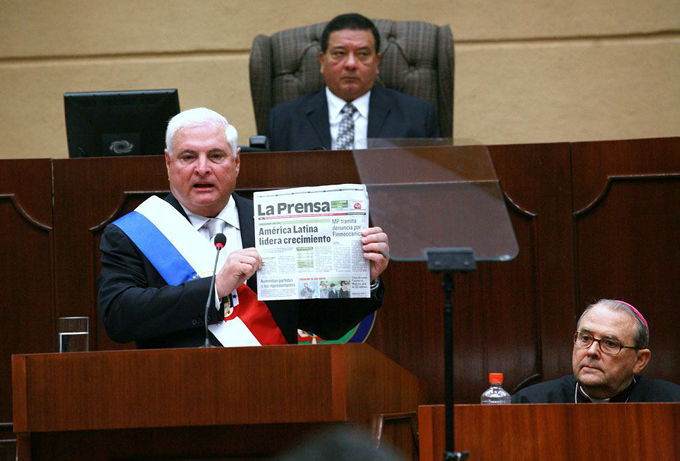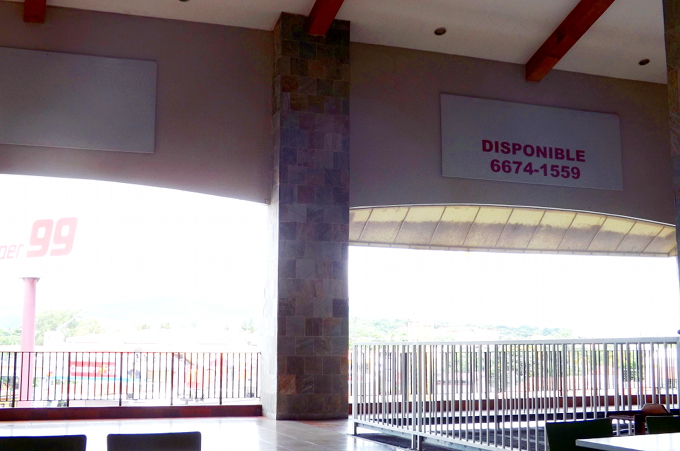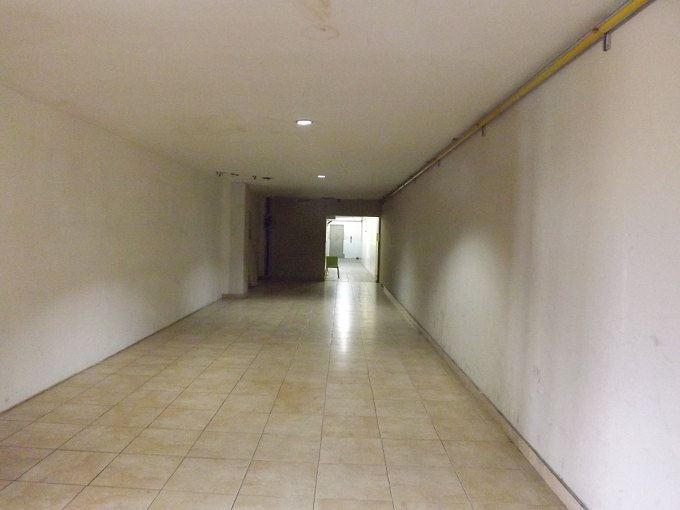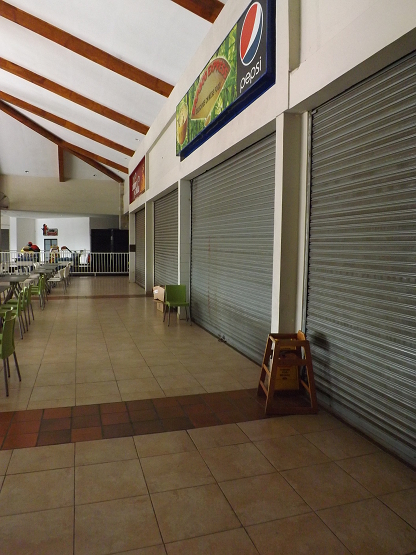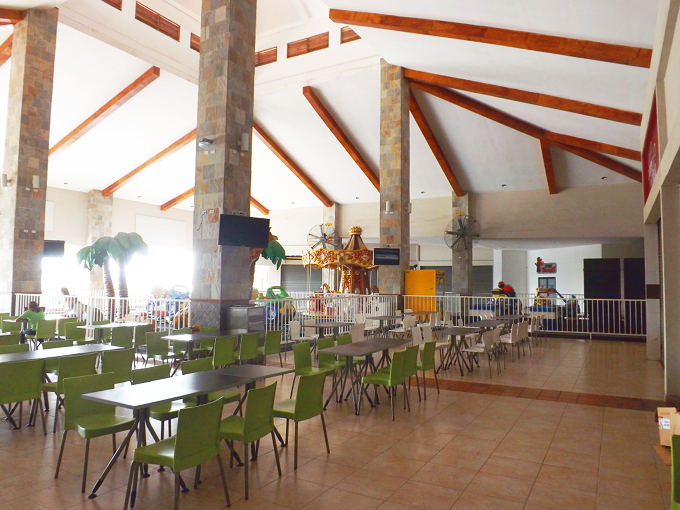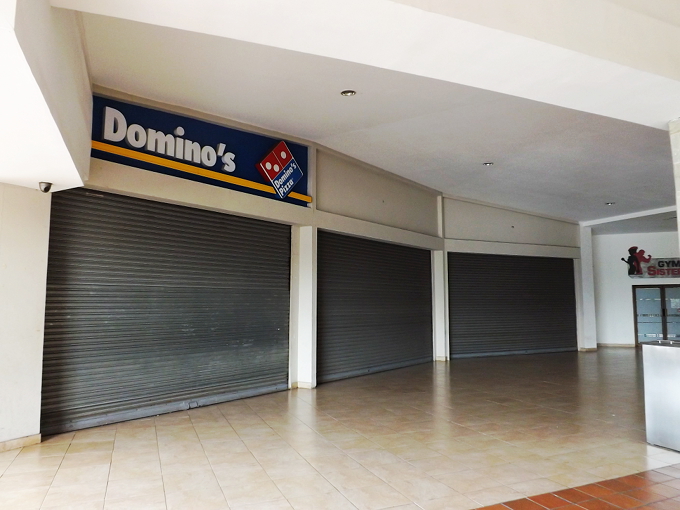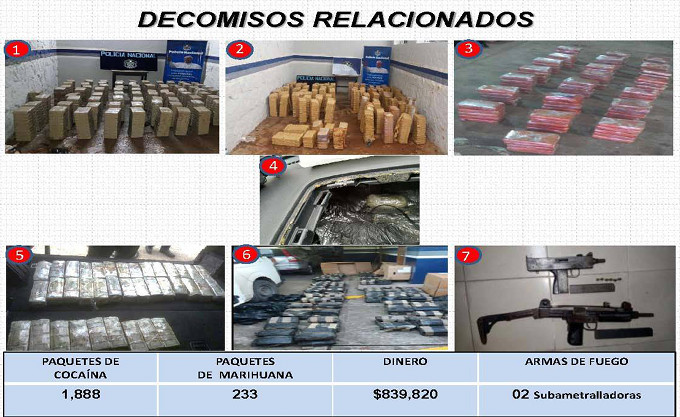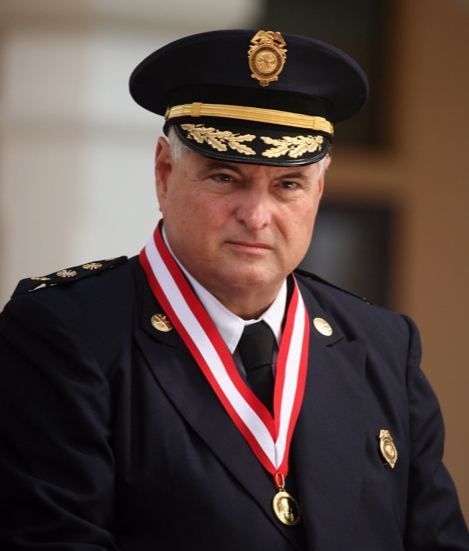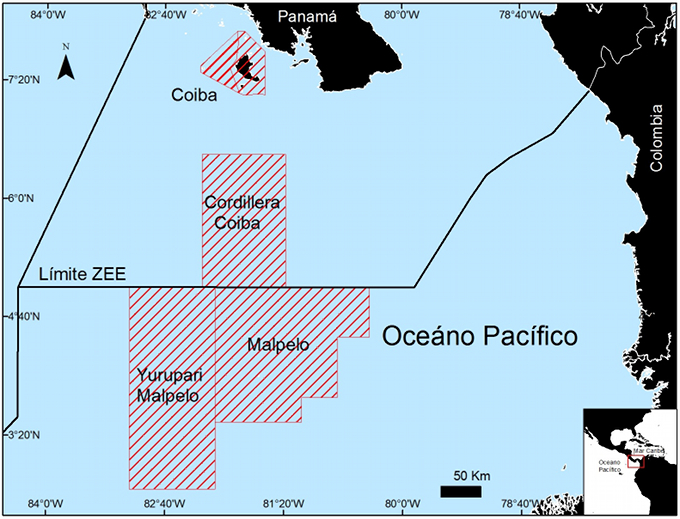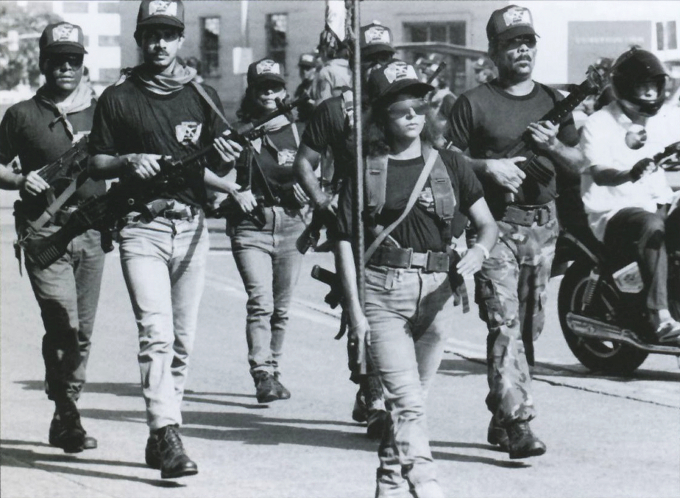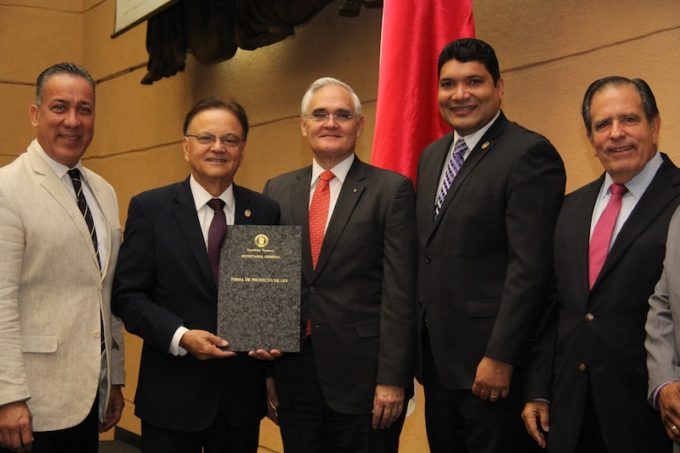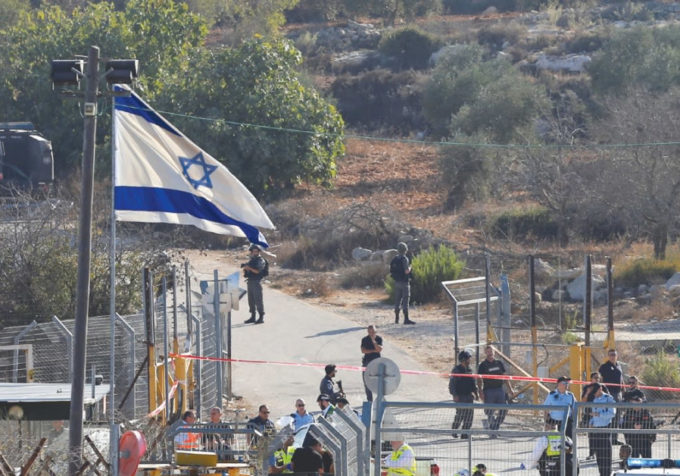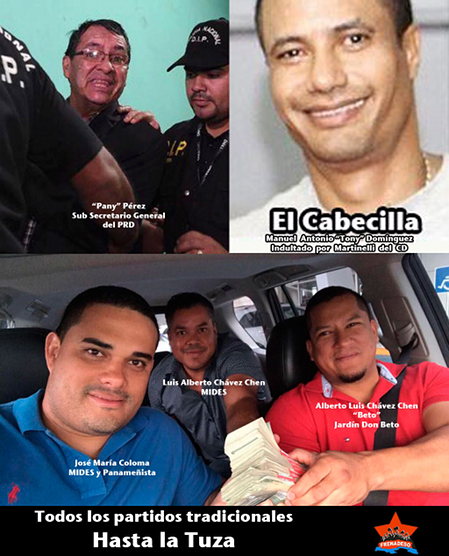
La Gallera y la Narcopolítica
por FRENADESO
El sonado caso de “El Gallero” ha puesto a flote la penetración de la mafia del narcotráfico en los estamentos policiales y en las cúpulas de los partidos políticos, especialmente en el PRD.
La imputación de cargos para 11 personas, incluido un mayor de la policía y un agente, el anunciado decomiso de más de 2 toneladas de drogas, armas y, más de 800 mil dólares. Los cargos: se formularon cargos de forma individual, por los delitos de asociación ilícita para delinquir, corrupción de servidores públicos, tráfico internacional de drogas y blanqueo de capitales (Ministerio Público).
El hecho en sí llamó la atención pues ocurre en un pueblo pintoresco, de gente honrada y trabajadora, con tanta historia y raíces folclóricas, la Heroica Villa de Los Santos, y por los niveles de ostentación que hacían los acusados.
Pero también, porque uno de los principales implicados es el Alcalde y Primer Subsecretario General del PRD, Eudocio Pérez, mejor conocido como “Pany”, vinculado a un elemento de extenso prontuario delictivo que en este caso es el cabecilla del grupo, Manuel Antonio Domínguez, alias Tony. Se ha señalado que pueden haber otras personas implicadas de otras provincias, particularmente Chiriquí.
Pero escudriñando el caso, nos podemos percatar que este confirma lo que es un secreto a todas voces, la narco política en Panamá, peligroso fenómeno que permite que verdaderas mafias acaparen grandes cuotas de poder político. Veamos algunos antecedentes.
La larga historia de corrupción y narcopolítica del PRD
Manuel Antonio Domínguez Walker, alias Tony, estuvo detenido hace más de 7 años por los mismos delitos que hoy se le imputan. No obstante, se le benefició de forma sorprendente con una fianza de excarcelación por parte de la juez suplente Zulay Rodríguez, hoy diputada PRD. Por ello, la Fiscalía Segunda de Drogas ordenó la conducción de la juez suplente. La red identificada y liderada por Tony Domínguez, tenía la intención de introducir 300 kilos de cocaína al país en esa ocasión.
Finalmente el caso quedó en nada. Esto fue en julio de 2010. Tony Domínguez, además, tenía otros procesos.
Pero este no es el único caso de narcotraficantes en que se haya envuelto el PRD. La misma diputada que hemos mencionado estuvo implicada en el asunto de “El Abuelo”, como se le conocía a Juan Juárez Orosco, uno de los supuestos narcotraficantes mexicanos más peligrosos de la época.
Según algunos medios, Juárez Orosco fue detenido en Panamá en marzo de 2012 y el 8 de noviembre de 2013 fue extraditado a Estados Unidos, acusado de ser el cabecilla de la red que le transportó 35,000 kilos de cocaína del cartel Beltrán-Leyva y ocho toneladas de la misma sustancia al cartel de Sinaloa, en el que operaba “El Chapo” Guzmán. (Panamá América)
Aquí aparece un personaje que se le ligó a la diputada, Héctor Rojas, quien estaba detenido desde el 30 de agosto de 2013 por secuestro y extorsión, y denunció que estaba pagando cárcel por figuras del PRD que no quieren que se conozca esta historia, en la que se mencionan lavado de dinero, amenazas y traición.
Zulay Rodríguez, habría asumido la defensa legal de “El Abuelo” mientras estuvo en Panamá. Según Rojas cobró unos 800 mil dólares a cambio de lograr que no extraditaran al peligroso delincuente, lo cual no cumplió. Ese dinero ayudó a financiar la campaña de la hoy diputada, según Rojas (“El Enano”).
Finalmente, “El Abuelo” fue extraditado a Estados Unidos, y su abogado en el proceso de extradición fue nada menos que Sidney Sitton, hoy abogado de Ricardo Martinelli, detenido en Miami.
Como ahora con “Pany” Rodríguez, el CEN del PRD de ese entonces salió en defensa de su copartidaria.
Eran los días también de los enfrentamientos a los internos del PRD. El 27 de septiembre de 2013 fue asesinado en San Miguelito, Juan Ramón Messina, quien estuvo detenido por casos de narcotráfico. Su esposa, candidata a diputada, Katy Ramos, acusó directamente a su copartidario y diputado del PRD, Raúl Pineda.
Antes, el 22 de junio de 2012, en una balacera en Calle K San Miguelito, murió el asistente personal de Pineda, Gilberto “Kiki” Pinzón y la hermana del diputado, Annet Pineda, fue herida de gravedad. Este hecho nunca fue aclarado.
Hace un año se anunció que cinco cabecillas de una red de narcotráfico en la provincia de Colón fueron en un operativo denominado ‘Piedra Negra’, realizado por la Dirección de Inteligencia y Antidrogas de la Policía Nacional.
Entre los aprehendidos figuran el subteniente Francisco Salazar Flores del Servicio Nacional Aeronaval (SENAN) e Hidalgo Gentil Jaramillo, representante del corregimiento de Viento Frío, Colón. Además de los panameños Eudin Eduardo Forbes, Luis Alberto Jessie, Marvin Eduardo Mena y Damaris Argelis Jackson. (El Siglo)
Hidalgo Gentil Jaramillo, el representante detenido, es miembro del PRD, pero llama la atención que en este caso, a diferencia del que implica al subsecretario general, “Pany” Rodríguez, dicho partido no asumió el mismo tipo de defensa, como tampoco lo ha hecho con otros copartidarios como “Pipo” Virzi y su hija y Gabriel Betsh implicados en sonados casos de corrupción. Pipo Virzi fue vicepresidente de la República con Pérez Balladares, patrocinador y prestamista de muchas figuras del PRD, incluido Martín Torrijos, y parte del círculo cero de Ricardo Martinelli.
Es una historia de narcotráfico y corrupción que envuelve directamente a figuras del PRD, que no tienen el menor reparo de presentarse como los inmaculados en los medios como en el caso del conocido programa de boxeo que dirige Juan Carlos Tapia, que ha logrado muchos miles de dólares en publicidad gracias a las cuñas de empresas muy cuestionadas como Odebrecht con coimas de cientos de millones de dólares, Panamá Ports que se denuncia que en 18 años solo ha aportado un millón de dólares al país, o Petaquilla Gold de Richard Fifer, quien se apropió de 3.1 millones de la cuota obrera de los trabajadores de dicha empresa. Tapia también ha sido defensor del ex director de la Caja de Seguro Social (CSS), Guillermo Saéz-Llorens, acusado de corrupción, desgreño administrativo y de atentar contra la salud de los panameños. Bajo la administración de Saéz-Llorens dicho programa recibió gran cantidad de cuñas de quien hoy sale en los medios como si no conociera a Ricardo Martinelli, a pesar de que abogó por bautizar la llamada Ciudad Hospitalaria con su nombre, con el consentimiento de la Junta Directiva de la CSS de ese momento.
Es un historial largo del PRD que tiene que ver con sus nexos con individuos vinculados al narcotráfico como el ex piloto de Noriega, Enrique Pretelt, consuegro de Ernesto Pérez Balladares y vinculado a la familia Araúz de Chiriquí, pasando por el escándalo del colombiano David Murcia, que involucró a Roberto “Boby” Velásquez y Balbina Herrera y las pugnas entre el mismo Boby Velásquez con amenazas de todo tipo contra su rival y copartidario José Luis Fábrega en las elecciones pasadas. Varias figuras del PRD o familiares suyos han sido sorprendidos con vehículos con drogas.
Hay hechos más recientes como son los 420 millones entregados por el PAN a diputados en la administración de Martinelli, que involucra a todos los partidos tradicionales, y las botellas, contratos falsos y los cheques por miles de dólares que se le hacían cobrar a supuestos beneficiaros, ciudadanos muy humildes, a quienes entregaban cincuenta o cien dólares y se quedaban con el resto, bajo la presidencia de la Asamblea de Rubén de León del PRD, cuando el Pacto de Gobernabilidad con el oficialismo. Se denunció que estos fondos ayudaron a financiar la campaña de Pedro Miguel González en las elecciones internas del PRD, hecho reconocido en declaraciones públicas por Popi Varela y el propio Juan Carlos Varela en grabación que se hizo circular. Pero, ¿habrá habido también dinero de “El Gallero”? Súmele a eso los dineros entregados por Transcaribe Trading de David Ochy. ¡Qué historia de este PRD!
Los indultos de Martinelli y el CD
Comprobando que para la mafia las diferencias políticas no son algo de importancia, como tampoco lo son para el conjunto de la clase dominante, ese “Árbol Genealógico de la Corrupción” que controla las cúpulas de los partidos tradicionales, a días de abandonar la presidencia, el 26 de junio de 2014, Ricardo Martinelli hizo un “regalo” a un grupo de personas con causas pendientes con la justicia.
Entre los beneficiarios de este gesto del presidente saliente estaban personajes implicados en casos de narcotráficos, entre ellos nada menos que Manuel Antonio Domínguez (Tony) y el colombiano Héctor Rojas que ya hemos mencionado.
La diputada Zulay Rodríguez denunció la liberación de Héctor Rojas y ambos se acusaron mutuamente de amenazas. Previamente Martinelli, como parte del caso de los pinchazos, hizo circular una comprometedora e incómoda grabación de la diputada días previos de las elecciones donde daba a conocer sus vínculos con “El Enano” Rojas.
El 26 de febrero del año pasado, “El Enano”, Héctor Rojas, recibió seis disparos de bala en un restaurante de San Francisco. Se arrastró hacia su automóvil, logró conducirlo, atropelló a dos personas y chocó contra varios vehículos hacia la sub estación de policía de San Francisco, de donde fue trasladado al Hospital Santo Tomás, lugar de su fallecimiento. Otro caso sin resolver.
Los fallos corruptos de la Corte
En otro ámbito, Tony Domínguez, también fue beneficiado el 30 de noviembre de 2015 por un fallo de la Sala Penal de la Corte, de los magistrados Jerónimo Mejía, Harry Díaz y Ayú Prado, en un caso de casación junto a su esposa Katherine Cuesta Melara de Domínguez y Salvador Jiménez que enfrentaban los cargos de blanqueo de capitales.
Dicha sala se ha visto implicado en fallos sorprendentes como la liberación del peligroso criminal “Juana” Peña, asesino del obrero y dirigente del SUNTRACS, Osvaldo Lorenzo.
Recientemente, y como muestra de la gran corrupción del Órgano Judicial, se logró desmantelar una red que se dedicaba al cobro por fechas de audiencia, manipulación de jurados de conciencia, concesión de fianzas y medidas cautelares, estancamiento de los expedientes y archivo de los casos. Participaba un oficial mayor del Segundo Tribunal Superior.
Solo entre los meses de enero a noviembre de 2015, las fiscalías de homicidio participaron en 101 juicios de los cuales 133 acusados fueron absueltos y solo hubo tres condenados, es decir, solo el 2%.
En todo caso llama la atención que no hayan figuras de gran relieve implicadas como magistrados y otros altos funcionarios, en momentos en que crecen fuertes rumores de que por fallos recientes de casos de corrupción, magistrados han cobrado fuertes sumas de dinero. Y hay que recordar la confesión pública del magistrado Harry Díaz, “Nosotros nos dedicamos a archivar expedientes y vender fallos”.
Siendo así, la pregunta que con toda justificación se hacen muchos es, ¿cuánto pagó Tony Domínguez por la fianza de excarcelación, el indulto y el fallo absolutorio de los magistrados? ¿Qué “tecnicismos” lo ayudaron? ¿O era tan inocente este personaje que cómo es posible que hoy esté tras las rejas por otro caso de narcotráfico? ¿O volverá a quedar libre?
La Gallera está encendida
Volviendo al caso de Tony Domínguez, se quiere presentar a un Alcalde y sub secretario general del PRD sumamente ingenuo, por no usar otra palabra. El no sabía en qué andaba, ni en las actividades irregulares de la gallera “Jardín Don Beto”, que quién le daba dinero en efectivo estaba implicado en tantas andanzas con el narcotráfico, ni de las ostentaciones que hacía en un pequeño pueblo como Los Santos donde manejaba nada menos que un Lamborghini.
Pero se han filtrado en los medios que existen tres grabaciones de las investigaciones realizadas desde octubre de 2016 del Ministerio Público dirigidas por la DEA, como una afrenta ya muy común a nuestra soberanía. En ellas “Pany” Rodríguez, a cambio de permisos para la gallera, acepta un pago de 15 mil balboas en efectivo. En otro, se habla de otro monto y en una tercera grabación de un apoyo económico para su campaña electoral de 2019. Esto es lo mismo que hacía Odebrecht, independientemente de los montos.
En su defensa han salido los miembros del CEN del PRD y otras figuras como el ex Director de la Policía y asesino de obreros, Rolando Mirones, quien tenía vallas publicitarias en Los Satos junto a otros copartidarios. Convendría averiguar quién pagó esas vallas que violaban y violan el Código Electoral.
Otro caso es el de Roxana Norato, ligada ahora sentimentalmente a Tony Domínguez, y quién hacía ostentación por las redes sociales de autos caros como Lexus, Jaguar y Mercedes Benz, reloj Rolex y otros artículos lujosos.
Norato se dice abogada independiente y trabajó en la Defensoría del Pueblo del 2006 al 2012 como Oficial de Derechos Humanos de los Privados de Libertad, cuando conoció al Gallero Tony Domínguez que estaba detenido. Luego pasó a trabajar en Administración de Construcciones Civiles (ACC) Corp. y aquí nos detendremos un poco.
Resulta que ACC fue una de las empresas preferidas por el PAN en el Gobierno de Martinelli. Recibieron millones en contrataciones directas. Hablamos de 42 proyectos de rehabilitación de caminos por 19 millones de dólares. En muchos no cumplió. Por cada kilómetro de camino rehabilitado esta empresa cobró al PAN 62 mil dólares mientras que el MIDA pagaba 45 mil.
El Presidente de ACC es o era Juan Gante Becerra, un chiricano de 37 años, 32 en el momento de esos contratos de 2012, cuando Norato abandona la Defensoría del Pueblo.
En ese entonces Giacomo Tamburelli era el Director del PAN y llamó la atención un proyecto de camino en Las Tablas de asfalto donde el tramo inicial de 1.9 kilómetros no vivía nadie, solo habían fincas ganaderas, entre ellas la del suegro de Tamburelli, Sergio Amaya Cedeño, padre de María Cristela Amaya de Tamburelli. Nos recuerda la carretera que en La Chorrera se mandaron a construir hacia sus fincas con fondos del FIS (después PAN) el ex magistrado Winston Spadafora y el ex Contralor Alvin Wedeen, que tanto aparece hoy en las televisoras hablando de corrupción, otro “Nananina”.
Los galleros y los panameñistas
Otro hecho que llama la atención es la relación con los panameñistas de Luis Alberto Chávez Chen, hermano de Alberto Luis Chávez Chen (Beto), arrestado por el caso de los Galleros y ambos directivos y propietarios de la Gallera “Jardín Don Beto”.
Luis Alberto Chávez trabajaba supuestamente como asesor legal del Despacho Superior del Ministro Alcibiades Vásquez Velásquez del MIDES, con un salario mensual de tres mil balboas.
Otro panameñista es José María Coloma, quien se dice cercano a Popi Varela y que aparece en una fotografía dentro de un auto con los hermanos Chávez Chen de la Gallera “Jardín Don Beto”, mientras uno de ellos (Beto), el segundo de la banda de Tony Domínguez, mostraba un fajo de billetes cuando estaba en el volante.
José María Coloma fue candidato a convencional por el Partido Panameñista por Parque Lefevre, y también está nombrado en el Mides como Coordinador de Proyectos en Los Santos con 2,800 dólares mensuales. Representa, al igual que Luis Alberto Chávez, varias empresas con contratos en el Gobierno.
Ningún partido tradicional se salva de la narcopolítica
Tanto el represor y violador de derechos humanos, José Raúl Mulino, cuando fue ministro de Seguridad, quizás presionado por la DEA, como el propio Juan Carlos Varela, han advertido de la penetración de los narcos en los partidos políticos. Es hora que se sepan los nombres y los casos.
Lo cierto es que hoy se comprueba hasta dónde los tentáculos del narcotráfico penetran los partidos políticos, los estamentos de seguridad, las estructuras del Estado y el sistema de justicia. Tanto es así que el cabecilla de la banda, Tony Domínguez, recibió un homenaje de la Junta de Carnaval de Los Santos por sus “contribuciones” y se dice que la esposa del mismo Fiscal Superior Antidrogas, Markel Mora, recibió diez mil dólares como Presidenta de la Junta de Carnaval de Los Santos, en momentos en que las investigaciones llevaban más de tres meses de haberse iniciado, por lo menos.
Existe una sensación de descontento en el pueblo por las medidas cautelares otorgadas de casa por cárcel que anuncian que, como en otros casos, nada va a pasar, pese al estruendo. Y eso es grave.
Ante ello insistimos. La institucionalidad y la justicia en Panamá están podridas. Urge una Asamblea Constituyente Originaria contra la Corrupción.
Vamos todos a la Marcha del Pueblo Honesto y Trabador este jueves 5 de octubre, 4:00 pm, Parque Porras.
~ ~ ~
Estos anuncios son interactivos. Toque en ellos para seguir a las páginas de web





